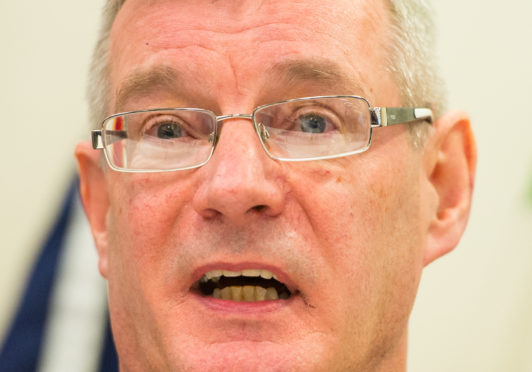
The joint leader of Scotland’s new Citizens’ Assembly has resigned only four months into the new role.
Veteran Labour politician David Martin was co-convener of the body tasked with leading debate around constitutional change. He was appointed in August but has stood down for “personal reasons”. Mr Martin was Scotland’s longest-serving MEP before losing his European Parliament seat this year.
Constitutional Relations Secretary Mike Russell said: “David Martin has played an important role in successfully establishing the Citizens’ Assembly of Scotland and bringing it to a point where it is now considering some of the major issues facing Scotland.
“For personal reasons he is unable to continue as a convener and the assembly will meet over the coming months under the convenership of Kate Wimpress, delivering its report to the Scottish Government next spring,” he added.
“I would like to thank David for his efforts and wish him well for the future.”
The Citizens’ Assembly will be made up of over 100 randomly selected members of the public, who will be reflective of the population and debate the future of the country.
It is based on Ireland’s citizens’ assemblies, which recommended referendums on same-sex marriage and abortion and led to changes in the law.
It has been boycotted by the Scottish Conservatives and Scottish Lib Dems, who have expressed concerns it being as a being used as a tool to achieve independence.
But Mr Martin said it would be independent of the Scottish Government and non-partisan. He told The Sunday Post in August that he hoped the Citizens’ Assembly would “improve the tone of the debate” in Scotland.
He said at the time: “Scotland has become very binary on both independence and Brexit. I hope having this dialogue and debate will improve the atmosphere and, without being too grand about it, be a healing process.”
Mr Martin warned at the Labour Party conference in Brighton in September that Scottish independence will come “in the not too distant future” without major reforms.
He said he was “disappointed with the British political class post-2014” and insisted there had not been any “serious reflection” on how Scotland might fit into a reformed UK.
Mr Martin was unavailable for comment last night.

Enjoy the convenience of having The Sunday Post delivered as a digital ePaper straight to your smartphone, tablet or computer.
Subscribe for only £5.49 a month and enjoy all the benefits of the printed paper as a digital replica.
Subscribe